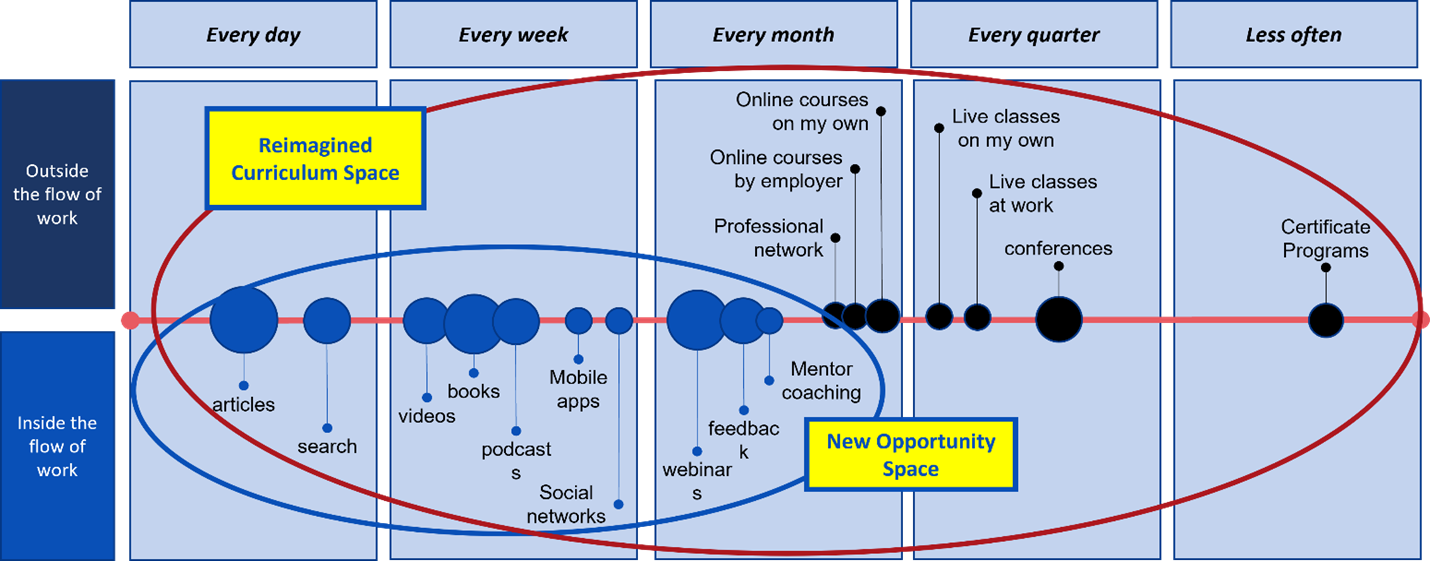TLA Standards Integration Prototype
The Total Learning Architecture (TLA) Standards Integration Prototype integrated data interoperability standards detailed in DoD Instruction 1322.26 to facilitate capturing and sharing performance assessments for complex skills and sharing that data to new training systems to show the development of expertise across a learner’s career. The prototype system helped demonstrate different approaches for instrumenting DAU systems with xAPI.
The Challenge
Today’s learners operate in an increasingly complex and dynamic environment where learning occurs both in and out of the classroom. Learning in the flow of work, through social groups, and outside formal programs of instruction results in an increasing need to track learner performance across learning experiences to better understand the learner’s progress and areas of deficiency to target.
Measuring learning that captures skill performance is difficult. For the most part, courses capture whether learners attended and then convey completion as representing learning (i.e., they attended, so they now understand the information conveyed). Sometimes, declarative and procedural knowledge can be assessed with multiple-choice type tests. In this effort, ADL Initiative worked with DAU to extend into how to use TLA to capture two innovative types of performance. Notably, metrics were created to assess engagement using transcripts of a team’s discussion held across a live Teams seminar and the associated chat between students. By leveraging team dimensional training (TDT), team performance metrics, such as initiative, were used to evaluate whether students were engaged with addressing questions posted, either verbally or in chat.
 view image full screen
view image full screen
About the Project
In September 2021, DAU funded ADL Initiative staff to support the DSMC Environment 3.0 project as part of their overall modernization effort. The Defense Acquisition University’s Defense Systems Management College (DSMC) is chartered to provide executive-level, international acquisition management and requirements certification training. DSMC’s advanced project management courses use teams of students to analyze and prepare case studies, share lessons from their experience, and provide feedback to their colleagues with the goal of preparing them to take on the most critical, expensive, and high-visibility projects in the DoD.
The Total Learning Architecture (TLA) Prototype integrated the data interoperability standards recommended in DoD Instruction 1322.26 with innovative problem-based scenario training, one of many new strategies being evaluated for DSMC Environment 3.0. The combined prototype system helped demonstrate different approaches for instrumenting DAU systems with xAPI with an operational LRS.
Central to the prototype was the instrumentation of Microsoft Teams for Education with xAPI. To reduce costs, the prototype utilized open-source components in place of the commercial tools currently used by DAU. The prototype used the Moodle LMS, the Learning Locker LRS, and DAU’s existing experience management software.
Within the DSMC learning environment prototype, xAPI was integrated into virtual classes, instructor-assigned tasks, and other tools used in Microsoft Teams for Education to demonstrate how xAPI data can be pulled from other systems (e.g., LMS, survey system) and used for both tracking and learner assessments. The resulting prototype demonstrated the value of creating an xAPI Profile for virtual classroom systems to help standardize the data being generated from different web platforms used to support training and education.
Incorporating the TLA data strategy into a curriculum enables more granular, interoperable data insights to be extracted. As a result, data can be shared across multiple systems to support learning and to increase the efficiency and responsiveness of training by identifying learner needs based on one assignment and applying strategies to address those deficiencies in the next assignment.
This prototype effort lays the foundation for the future development of systems using TLA standards. This project showed how learner data generated from all DAU systems (e.g., LMSs, learning experience platforms, video content servers, survey systems, and web-conferencing activities) could be leveraged collectively to create a comprehensive picture of learners and their needs. Skills and performance data can also be mapped to reflect a learner’s competencies, which is important to develop a personalized learning trajectory in alignment with the required skills and credentials in support of the learner’s career path.


